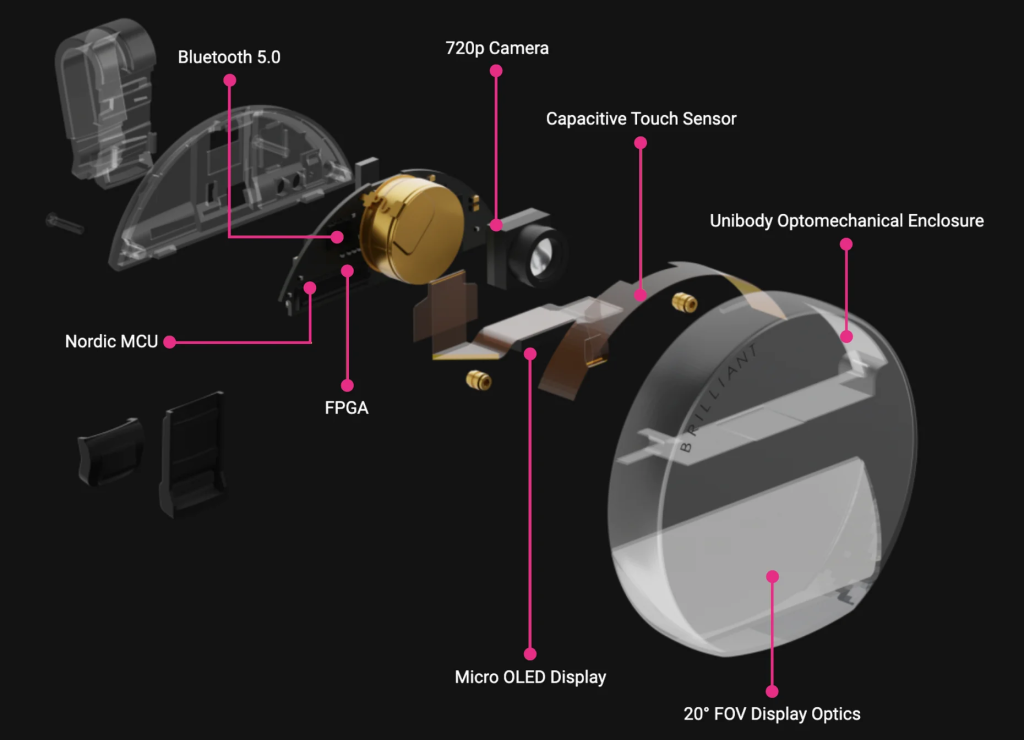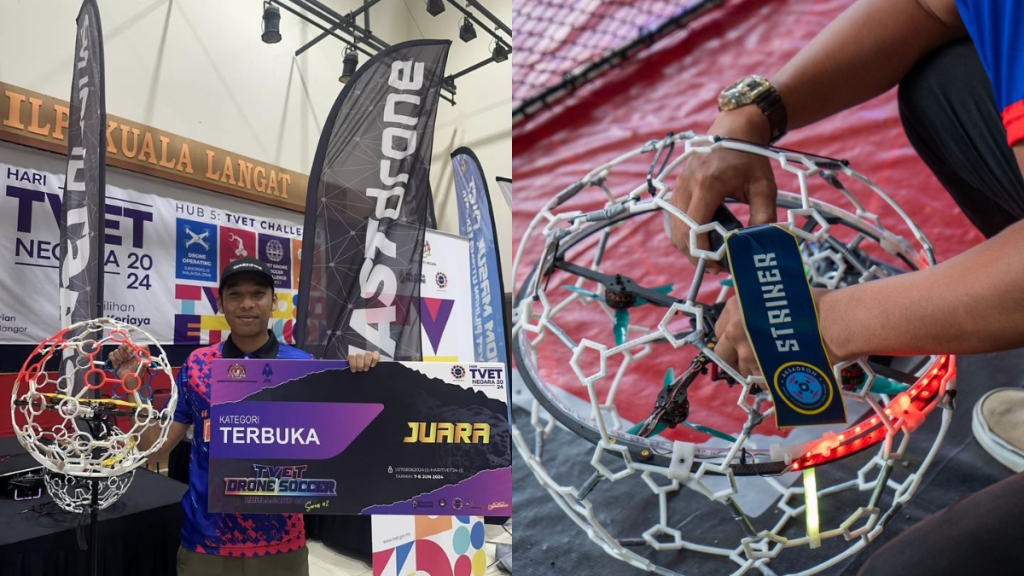In a gradually more competitive space of AR/VR devices, one Singapore-based startup decided to go small — very small — and developed a single augmented reality glass that you can mount over your eyewear, to provide you with useful information on the go.
While it surely will not be in competition with Apple’s upcoming Vision Pro — priced at a whopping US$3,500 upon its launch next year, and promising a fully immersive experience with a blend of AR and VR — you can already buy Brilliant Labs‘ Monocle for just a tenth of the price of its much larger relative.
Yes, the device isn’t some sort of a nebulous Kickstarter promise that you will have to wait years of broken promises for, but you can purchase it today for US$350 on the company’s website which doubles as a store.
Given its advanced stage, it is perhaps not such a big surprise that it attracted interest from high-profile Silicon Valley investors, including Oculus co-founder Brendan Iribe, Siri co-founder Adam Cheyer, and Pebble founder Eric Migicovsky; collectively raising US$3 million in its seed round announced last month, which it is planning to use to develop its second wearable.
The Raspberry Pi of AR
In its basic form, the Monocle is quite rudimentary for most users at this point.
It is equipped with a 720 pixel camera, a microphone and a touch sensor, using Bluetooth for communication and currently offers only one hour of battery life (though it comes equipped with a charging case carrying up to six charges more).

But while you could use it on a daily basis to interface with ChatGPT on the go, seeking information and receive it instantly right before your eyes, the real purpose of the device at this point is rapid prototyping for thousands of tinkerers, programmers, hobbyists and hackers, coming up with all sort of real-life applications.
In one such example, presented shortly after the sales launch in February, a San Francisco-based 22-year-old Computer Science major, Bryan Chiang, created his own version of an AI assistant, dubbed RizzGPT, as it is supposed to provide the user with a boost in social situations.
Through the built-in microphone, it actively monitors the ongoing conversation and provides on the fly suggestions of appropriate responses:
say goodbye to awkward dates and job interviews ??
— hau (@bryanhpchiang) March 26, 2023
we made rizzGPT — real-time Charisma as a Service (CaaS)
it listens to your conversation and tells you exactly what to say next ?
built using GPT-4, Whisper and the Monocle AR glasses
with @C51Alix @varunshenoy_ pic.twitter.com/HycQGGXT6N
Based on ChatGPT and Whisper, OpenAI’s speech recognition system, it may appear very basic at this point, but it’s exactly the sort of a prototype that the AR monocle is enabling now — before more sophisticated products can enter the market in the coming years.
To that end, the Brilliant Labs’ Monocle is not powered by a traditional processor and doesn’t run an operating system as such, like you would find in modern smartphones or IOT devices.
Instead, it is powered by an FPGA (field-programmable gate array) — a circuit that can be completely reprogrammed at will.
Traditional processors have their internal logic “baked” into them at the production stage. Meanwhile, FPGAs, while more expensive to manufacture and not as powerful computationally, allow for total customisation of that logic to serve very specific purposes. This, again, makes them an excellent choice for prototyping.
This customisation process is made easier thanks to Monocle’s use of StreamLogic — a no-code, drag-and-drop FPGA programming environment, which takes the burden of coding away and helps product developers to focus on testing new functions very rapidly.

In many ways, the Monocle is like Raspberry Pi, once an educational project revolving around very basic, small, modular computer boards, which has outgrown its original purpose with time.
Within a decade, it has become enormously popular not only with hobbyists assembling their own devices, but found practical use in other fields including robotics, industrial applications, monitoring of other hardware and machinery, or even consumer products like smart home devices or small computers.
The hope behind the Monocle (and, presumably, its successors) is that it is going to similarly grow beyond its initial limitations and become the backbone for development of hundreds of different solutions for consumers and companies alike.
This is why, thanks to the handsome capital injection, we should hear more about Brilliant Labs in the coming years.
Featured Image Credit: Brilliant Labs











